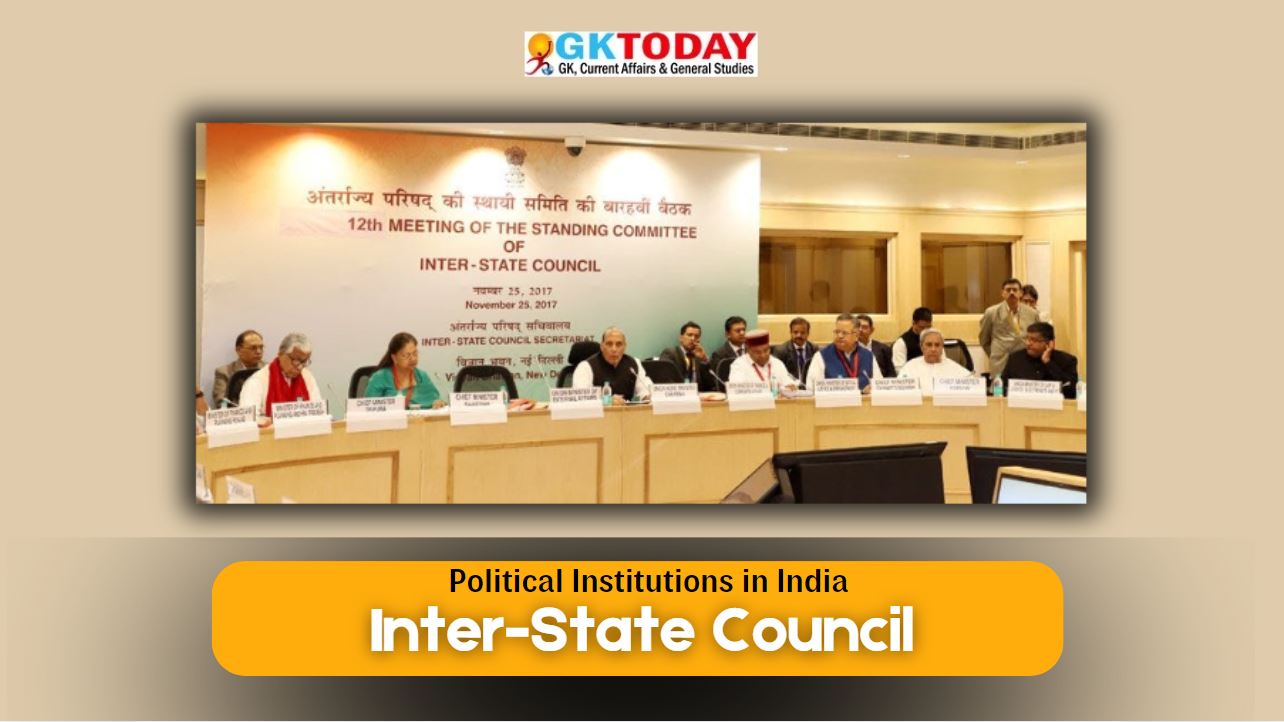Inter-State Council [UGC-NTA NET Political Science Notes]
The Inter-State Council (ISC) is a very important institution in India’s federal structure, established to encourage cooperation between the central government and the states. It serves as a platform for dialogue on issues of mutual concern, promoting coordination and addressing disputes.
Establishment of the Inter-State Council
The Inter-State Council was established under Article 263 of the Constitution of India. The President of India formally created it in 1990. The council’s formation aimed to enhance cooperative federalism by providing a mechanism for states and the central government to collaborate.
Purpose of the Inter-State Council
The ISC has two primary purposes:
- To promote coordination between states and the central government.
- To address disputes and issues of common interest among states.
These objectives are crucial for maintaining harmony in a diverse nation like India, where regional interests often intersect with national priorities.
Composition of the Inter-State Council
The council comprises several key members:
- The Prime Minister serves as the Chairperson.
- Chief Ministers of all states and Union territories with legislatures are included.
- Governors of states not represented by Chief Ministers participate.
- Other members may be added as deemed necessary by the Chairperson.
This diverse composition ensures representation from various levels of government, facilitating comprehensive discussions.
Functions of the Inter-State Council
The ISC performs several important functions:
- Investigates and discusses subjects of common interest to states and the centre.
- Makes recommendations for better coordination between states and the centre.
- Resolves disputes between states.
These functions are vital for addressing the complexities of governance in a federal structure.
Meetings of the Inter-State Council
Meetings of the ISC are convened as required. The frequency of these meetings is not fixed and depends on pressing issues. While the council can meet regularly during times of crisis, it may also remain inactive during stable periods.
Significance of the Inter-State Council
The ISC plays important role in Indian federalism:
- Acts as a forum for dialogue and discussion on federal issues.
- Enhances cooperative federalism by encouraging collaboration.
- Provides a platform for states to voice their concerns to the central government.
Through these functions, the council contributes to a more unified approach to governance.
Recommendations of the Inter-State Council
The ISC can make recommendations, but these are not binding on the states or the central government. This non-binding nature can limit the effectiveness of the council’s suggestions. However, they still carry weight in shaping policy discussions.
Related Bodies
Several bodies interact with the ISC, including:
- National Development Council (NDC)
- Finance Commission
While these bodies play important roles in federal relations, they operate distinctly from the ISC.
Amendments and Changes
The structure and functions of the ISC can be modified by the central government. Notably, the 89th Constitutional Amendment Act of 2003 led to the establishment of the National Commission for Scheduled Castes and Scheduled Tribes. This commission also engages with the ISC, reflecting the evolving nature of federal governance.
Judicial Interpretation of the Inter-State Council
The Supreme Court of India has acknowledged the importance of the ISC in maintaining the federal structure. Judicial interpretations often highlight the council’s role in ensuring cooperation between the centre and states, reinforcing its significance in governance.
Current Status of the Inter-State Council
In recent years, the ISC has experienced relative inactivity, with few meetings held since its establishment. This decline in activity raises questions about its effectiveness in addressing contemporary federal issues.
Challenges Faced by the Inter-State Council
The ISC faces several challenges:
- Limited effectiveness due to the non-binding nature of its recommendations.
- Political differences among states can hinder cooperation.
These challenges can impede the council’s ability to fulfil its mandate effectively.
Key Articles Related to Federalism
Several articles in the Constitution of India are fundamental to understanding federalism:
- Article 246: Distribution of powers between the Union and the States.
- Article 256: Obligation of states and the Union.
These articles delineate the responsibilities and powers of different levels of government.
Key Terms in Federalism
About specific terms is essential for grasping the concept of federalism:
- Cooperative Federalism: A concept where the central and state governments work together.
- Federalism: A system of governance where power is divided between a central authority and constituent political units.
These definitions provide a foundation for analysing India’s federal structure.
Notable Members of the Inter-State Council
The ISC has seen contributions from various members:
- The Prime Minister, as Chairperson, plays important role in steering discussions.
- Chief Ministers have historically influenced the recommendations made by the council.
These leaders shape the direction of federal dialogue and policy.


